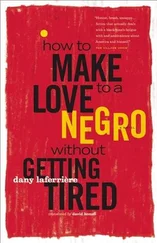‘I’m going to kill him,’ he told Andía’s brother, but the Saharawi stopped him.
‘You have to drive us to Tifariti. We can’t leave on our own.’
They went back to Hata-Rambla, ready to leave the following day as soon as it got dark. The family’s luggage seemed of greater volume than the vehicle.
‘We can’t take all that. It won’t fit. And where will you go?’
‘On the roof,’ said Andía calmly. ‘We’ll squeeze up.’
Santiago knew it was impossible, but was reluctant to disappoint her. Although he didn’t say anything, he had a night-long nightmare in which people, luggage and animals came in and out of the car’s window in a sort of never-ending game of tag. The following morning he went to look for diesel. It wasn’t easy, but he managed to obtain three cans in exchange for a goat. Yet their problems had only just started. Some rumours were confirmed by the locals: El Aaiún had been sealed off by the military. On the 1st of December explosives were found at the Parador Nacional . It was initially thought that the Polisario was behind the attempted attack, but it was later discovered it was the work of a Spanish mayor and a sergeant who was an expert in explosives. The explosives, in fact, turned up next to some cans of butane on the courtyard of the Parador. After that the news spread that a few dignitaries from Morocco and Mauritania were staying there, ready to take over the administration of the territory. Security was tightened. Stop-and-search became indiscriminate. On that December day it was impossible to go around El Aaiún without being stopped and frisked by troops. Santiago had to inform the family that it was impossible to leave the city.
The legionnaire’s new plan was to escape on foot, crossing the river in the middle of the night. With a little luck they’d all manage it, even the small children. He would then come back and try to leave the city in the Land Rover, dressed in his corporal’s uniform. He tried to make them understand that, if they saw him loaded with all those boxes and people on the roof of the vehicle, they would not let him through. Lazaar’s mother seemed to think he would manage it anyway. Yet, after the thwarted attack, it became completely impossible to flee. All San Román could do was wait for a more propitious moment. In any case, they would not make it to Tifariti within the stipulated period of time.
Days passed in anxious uncertainty. They all asked the legionnaire what he was waiting for, and although his precautions were justified they would not understand why he did not honour his word. On the 10th of December, one of the rumours circulating in the city was confirmed. The news was broadcast loud and clear on Mauritanian radio: the Army of Mauritania was invading the Spanish province from the south. El Aaiún, from that moment, was like a mouse-hole. As soon as Santiago learned this, he opened the bonnet of the Land Rover and started talking to the engine as he would to a person. He checked and double-checked the hoses. He cleaned the terminals of the battery. He made sure the oil and the water in the radiator were at the right levels. He let some air out of the tyres. Then he took a walk around the city. Before midnight he was back. He went into the house, nervous, and told everyone now was the moment to leave. No one had gone to sleep. It seemed that the Saharawis had guessed what was about to happen.
‘Quick. Everyone in the car. We’re leaving.’
‘And the guards?’
‘There aren’t any. It’s an open city. Something serious is going on.’
When Santiago saw how they all squeezed into the vehicle, he could hardly believe it. The three women and the two little girls climbed in the front. In the back were Andía and her three sisters. Every bit of free space was filled with bags and supplies, so that the girls were squashed against the windows. The six lads clambered onto the roof with the rest of the luggage and held on to the baggage rack. The eldest one positioned himself at the front to stop the little ones from flying off if the breaks were slammed, and the second eldest did the same at the back. The legionnaire didn’t say anything, although he knew it was madness to travel in those conditions. He climbed in and, just before turning the ignition, felt something at his feet. He almost screamed. It was two chickens. At the women’s feet he saw a shape that looked like a dog. He recognised the goat. Lazaar’s mother smiled to him with a calm that seemed wholly inappropriate in the circumstances.
‘We cannot leave the city without any food,’ she said.
Santiago did not raise any objections. The vehicle moved with difficulty. The legionnaire thought it would grind to a halt before they reached the end of the street, but it didn’t. Then they took an earthen road strewn with rocks and drove across the neighbourhood. There was not a trace of the Spanish troops. The Land Rover struggled on, spewing out black smoke. Santiago took the Smara road out of the city, with the headlights off. They advanced almost as slowly as a man on foot.
San Román remembered Lazaar’s warning never to follow the road. As soon as the terrain levelled off he started driving across the desert. The rocks under the tyres were like sharpened knives, but the vehicle kept on going. Santiago knew the way, at least up to the crossroads where the road to the phosphate mines of Bu Craa started. Although the path was lost from view, Santiago oriented himself by the hillocks. He’d done the journey several times, and was familiar with the sparse bushes and the line of the horizon. It took over three hours to reach the crossroads where the Smara road forked in two. In normal circumstances he would cover the same distance in half an hour, but the vehicle barely crawled forward. Judging by the tracks in the desert it was obvious that many Saharawis had decided to stay off the road. Even though they were driving at a snail’s pace, Santiago could not afford to take his eyes off the terrain. A patch of soft ground might turn into a soft pit, and when he drove onto sand to avoid the sharp rocks the vehicle started to sink and skid. The boys would then jump off and push, or clear the sand with their hands from under the wheels. No one said a word. Everyone looked into the horizon as if they could speed up the journey with their gaze. At the Edchera junction, on the way to Gaada, Santiago decided to leave behind the stony ground and take the road, otherwise it would have been easy to get lost. He had the impression that, across the desert, they moved in a tortuous zigzag. And if they continued that way they wouldn’t have enough diesel to cover the four hundred kilometres to Tifariti. Miraculously, the Land Rover lurched on in spite of its heavy load.
The road looked like a car cemetery. Every few kilometres they came across an abandoned car or truck, all going towards Smara. Santiago, well aware of the need for spare parts, stopped every time. Yet the vehicles had been taken apart by their owners or by other drivers who’d had the same idea. If there was a tyre left it was because it had burst. The tanks had no fuel. Batteries, carburettors, headlights, even steering wheels, had been plundered. When a vehicle broke down, its owners took it apart and continued on foot. Small groups of people camped by the road to recover their strength before journeying on. One could see entire families with their belongings loaded onto a donkey and a goat in tow. Every now and again a truck or a van overtook the Land Rover, but none kept to the road. San Román, however, did not dare leave it. Every hour he stopped and opened the bonnet to let the engine cool off.
In ten hours they did barely fifty kilometres. By midday Santiago knew they couldn’t go on like that.
‘We have to leave some stuff behind. The Land Rover is about to burst.’
Читать дальше




![Ally Carter - [Gallagher Girls 01] I'd Tell You I Love You But Then I'd Have to Kill You](/books/262179/ally-carter-gallagher-girls-01-i-d-tell-you-i-lo-thumb.webp)







